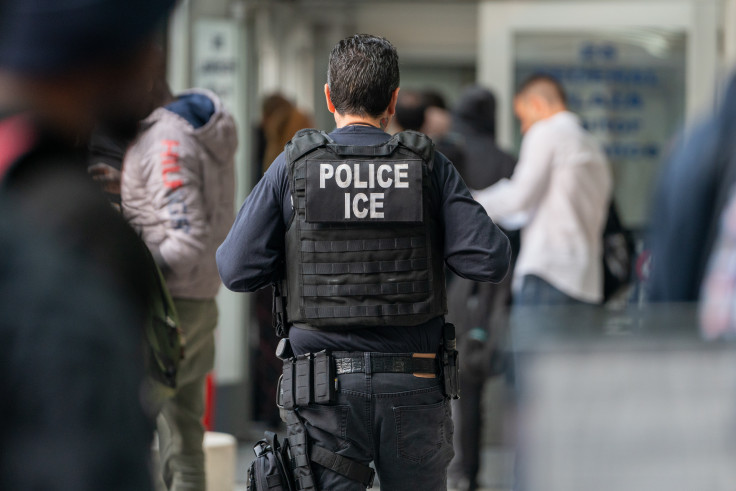
A federal class action lawsuit filed by civil and immigration rights organizations is accusing federal authorities of conducting unconstitutional ICE raids across Southern California that involve mass arrests without warrants, denial of legal counsel, and harsh detention conditions.
The lawsuit, led by the American Civil Liberties Union (ACLU) and other advocacy groups, alleges that Immigration and Customs Enforcement (ICE) and related federal agencies have been carrying out military-style raids targeting workers and U.S. citizens in public spaces such as swap meets, car washes, churches, and bus stops. The complaint describes the operations as "prioritizing numbers, pure numbers" and compares the seizures to "brazen, midday kidnappings."
With that in mind, The Washington Post published a comprehensive list on Wednesday as a guide to how ICE officers should conduct immigration arrests, taking into account what is legal and what isn't:
Warrantless arrests
Under the Immigration and Nationality Act, ICE officers can arrest someone without a warrant if they have "probable cause" to believe the individual is in the U.S. illegally and likely to flee. Officers must base their belief on factual evidence, such as a criminal record, and cannot rely solely on race, ethnicity, or profession.
Detentions vs. arrests
For brief detentions (not formal arrests), officers need only "reasonable cause," a lower standard based on their judgment that a crime may have been committed. "Reasonable cause is different from "probable cause" in that it requires less evidence and can be based off an officer's subjective determination that there are sufficient grounds to believe a crime may have been committed," The Post explains.
Questioning in public
Officers may approach anyone in public and ask questions. Individuals have the right to remain silent; however, statements like providing false identification or admitting illegal status can be grounds for arrest.
Arrests on private property
ICE needs a judicial warrant to enter private homes or nonpublic areas of businesses for arrests, except when the property owner consents. "Federal officers recently showed up at several Los Angeles-area businesses and arrested suspected undocumented immigrants," explains the post. "While those were private businesses, there are areas within, for example, a car wash or restaurant that are considered publicly accessible. The space where customers are eating, or an office lobby, may both be considered places where ICE can arrest people."
If a business owner allows ICE inside without a warrant, immigration officers would then be free to walk around and engage people for voluntary questioning, though they would still need to have reasonable suspicion to do so. Similar restrictions apply when entering an individual's home.
Use of deception
ICE officers may use ruses—pretending to be from another agency to gain entry—but may not impersonate certain officials or use coercion or threats. Furthermote, officers must identify themselves as "immigration officers" "as soon as practicable" during an arrest. There is no legal requirement to provide personal names. Badges are generally displayed unless officer safety is at risk
Use of masks
There is no clear legal prohibition on officers wearing masks during arrests. Officials say masks protect officers from retaliation and harassment. On Wednesday, however, Democratic lawmakers introduced a bill that would prevent ICE agents from covering their faces while conducting immigration enforcement operations.
Detention conditions
ICE detainees have the right to legal counsel and communication with family, but the lawsuit describes conditions in some facilities as "deplorable and unconstitutional," with reports of overcrowding, limited food and water, and lack of attorney access. DHS officials dispute these claims, asserting ICE facilities meet or exceed prison standards.
Use of force
ICE officers are trained to avoid force but may use it when safety is at risk, including deadly force if facing imminent danger. The agency states all incidents are investigated.
Children
Children can be detained with parents in family detention centers that must comply with the Flores settlement, which limits detention duration and sets care standards. ICE does not detain U.S. citizen children.
© 2025 Latin Times. All rights reserved. Do not reproduce without permission.





